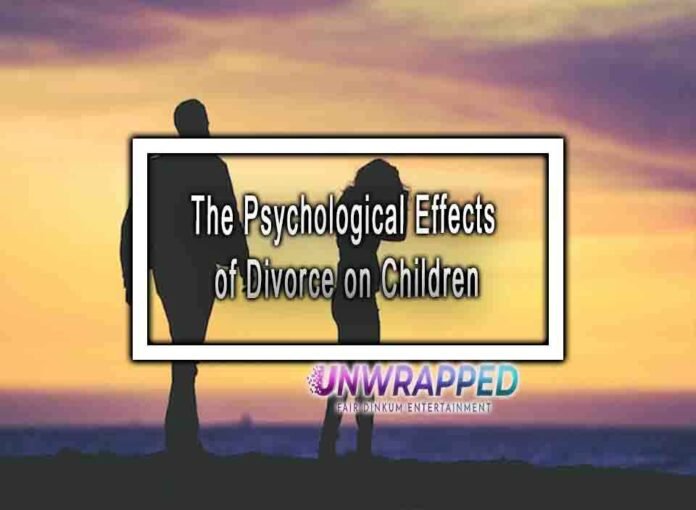Divorce can have a range of psychological effects on children, and these effects can vary depending on a child’s age, gender, temperament, and the specific circumstances of the divorce. While not all children will be affected in the same way, here are some common psychological consequences of divorce on children:
Emotional Distress:
Children often experience a sense of loss, sadness, and emotional distress when their parents divorce. They may feel a range of emotions, including anger, fear, anxiety, and confusion. It can be particularly challenging for younger children who may not fully understand the reasons behind the divorce.
Depression and Anxiety:
Some children may develop symptoms of depression and anxiety as a result of their parents’ divorce. They might worry about the stability of their own future relationships, their living arrangements, and their relationships with each parent.
Behavioral Issues:
Divorce can lead to behavioral problems in children. They might act out, exhibit aggression, defiance, or withdrawal. Younger children may regress in their development, such as bedwetting or thumb-sucking.
Academic Performance:
Divorce can sometimes have a negative impact on a child’s academic performance. They may struggle to concentrate in school, their grades may drop, and they might have difficulty with assignments and homework.
Low Self-esteem:
Children of divorced parents may experience a decrease in self-esteem and self-worth. They may blame themselves for the divorce, even if it is not their fault. This can lead to feelings of guilt and shame.
Challenges in Relationships:
Some children may find it difficult to form and maintain healthy relationships in the future. They may struggle with trust issues, commitment, and intimacy due to the disruption in their family unit.
Long-term Effects:
While many children can adapt and cope with the challenges of divorce over time, some may carry the emotional scars into adulthood. This can impact their own relationships, mental health, and overall well-being.
It’s important to note that not all children of divorced parents will experience these negative psychological effects, and some may even find relief in a high-conflict household being transformed into a more stable and peaceful environment. Several factors can mitigate the impact of divorce on children, including:
- Parental Cooperation: Children tend to fare better when parents are able to cooperate and minimize conflict during and after the divorce.
- Emotional Support: Having a support system that includes friends, family, or counseling can help children cope with the emotional challenges.
- Consistency and Routine: Maintaining a sense of consistency and routine in a child’s life can provide stability and a sense of security.
- Open Communication: Parents who communicate openly with their children about the divorce can help them understand what is happening and why.
- Professional Help: In some cases, children may benefit from professional counseling or therapy to help them navigate the emotional impact of divorce.
Every child’s experience is unique, and it’s essential for parents to be attentive and responsive to their child’s emotional needs during and after a divorce to minimize the potential negative psychological effects.










